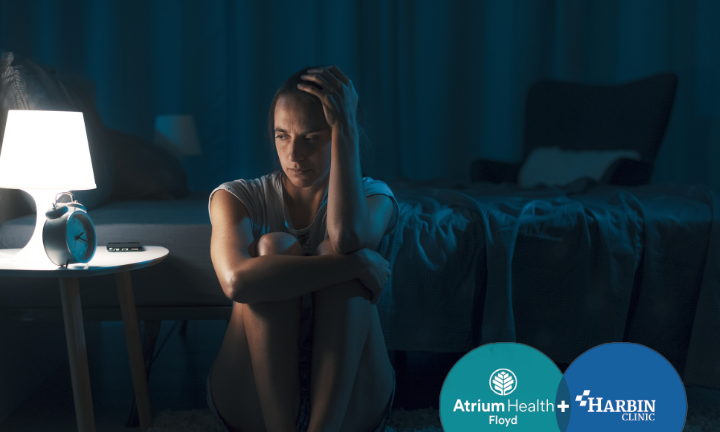Fueling Healing: Nutrition and Exercise in Cancer Care
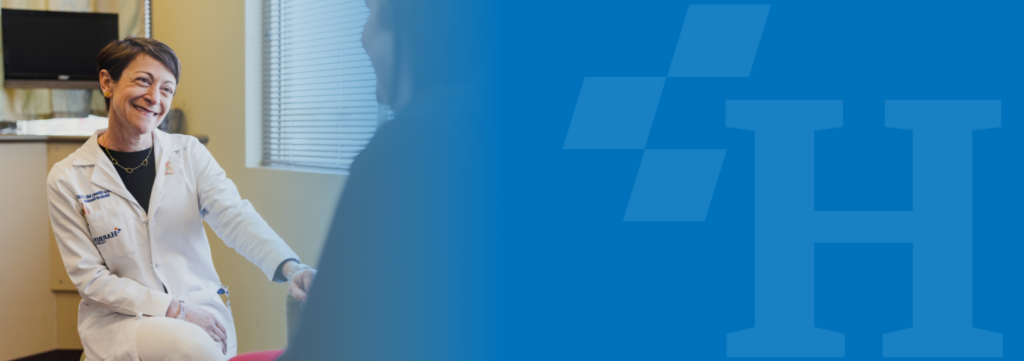
Colon and Kidney Cancer Awareness Months coincide with National Nutrition Month in March, and Harbin Clinic physicians are emphasizing the critical role nutrition and complete care play in cancer prevention and treatment.
In the US today, the most recent cancer statistics are staggering. The latest data from the American Cancer Society estimates one out of every two men in the US will be diagnosed with cancer during their lifetime, and one out of every three women. Georgia’s cancer rate also grew, making it the state with the 7th highest cancer rate in the country. Seeing these numbers, it is no wonder patients have questions about prevention and risk, especially with increases in younger diagnoses like colorectal cancer.
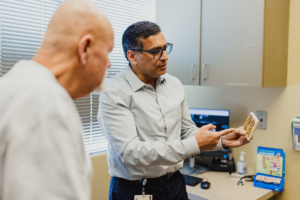
However, researching cancer risk factors, especially those related to nutrition, can be complex. While few direct links can be made to specific foods, physicians agree the top three greatest cancer risk factors are smoking, obesity and alcohol. Research also suggests that eating more non-starchy vegetables and whole fruits is likely to lower one’s risk of certain cancers as is avoiding processed and red meats.
Beyond prevention, Harbin Clinic physicians emphasize the power of nutrition and exercise on healing, resilience and enhanced quality of life during a cancer journey. With growing cancer statistics and an aging population, understanding the impact of these daily choices can make a powerful difference in the lives of those diagnosed with cancer.
The Impact of Nutrition & Exercise:
Balanced nutrition is key to successful cancer treatment because the body uses food for energy, fighting infection, and tissue growth. Despite changes in appetite and taste buds during cancer treatment, the medical team at the Harbin Clinic Cancer Center aims for patients to maintain a diet with a wide variety of whole foods. In connection with Cancer Navigators, patients are also offered nutrition classes and individual nutrition consultations during and after one’s diagnosis and treatment.
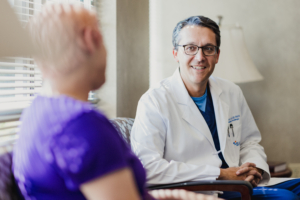
Regular exercise is another crucial component of care. It helps patients tolerate treatment, improves quality of life and emotional well-being, and can decrease risk of cancer recurrence. To help patients incorporate exercise into their cancer journey, the Cancer Center encourages use of the LiveStrong YMCA program and other oncology rehab programs in the area that offer complimentary and safe ways for patients to get moving.
Describing their focus beyond traditional treatment, Dr. Dilawar Khan explains, “We want our community to understand that healthy diet and exercise are truly the brick and mortar for health and for healing.”
Community Partnerships:
The Harbin Clinic Cancer Center also partners closely with Cancer Navigators, a local non-profit committed to easing the hardships cancer patients face. They are best known for offering a variety of resources to cancer patients and their families free of charge such as: social support, counseling, further nutrition assistance, transportation assistance, medical supplies, wigs, hats and scarves, day and weekend retreats, weekly support groups and caregiver support. The non-profit is even located in the Harbin Clinic Cancer Center to help patients get connected with this support immediately.
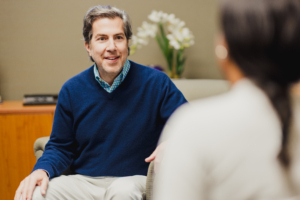
Chairman of the Cancer Navigators Board and a Harbin Clinic Oncologist, Dr. Gregory Harris described some of their most recent work saying,
“A surprising number of cancer patients in our community have severe food insecurity. Today, 225 active cancer patients utilize the Northwest Georgia Hunger Ministries food bank each month and have access to special hours to decrease their infection risk. We plan to have nutritionists onsite to help them select the best foods available for healing, but healthy food goes fast. If you are passionate about this cause, I encourage you to give money rather than food, allowing the Northwest Georgia Hunger Ministries to purchase the healthiest foods possible in bulk. Cancer Navigators is also working with the food bank to hopefully obtain a transformational grant between $50,000 – $100,000 specifically for cancer patient nutrition.”
In relation to food insecurity, one of the Harbin Clinic Oncology team’s greatest concerns are those in the community afraid to seek treatment due to financial concerns. They promise no one is ever turned away from the Cancer Center, and they have onsite financial counselors to help manage financial stress and burden. Whether a patient is insured or uninsured, do not delay care for fear of medical bills.
Building Blocks for Healing:
Overall, the medical team at the Harbin Clinic Cancer Center believes complete care reaches beyond traditional treatment and includes the complementary therapies listed above as well as others that address the whole-person suffering, such as:
- Nutrition
- Movement and exercise
- Treatment side effects and stress reduction
- Financial need and transportation
Addressing these areas with special therapies and assistance, provided alongside traditional treatments, relieves certain symptoms of cancer, decreases the potential treatment side effects, and improves a patient’s general well-being, making treatment as effective as possible.
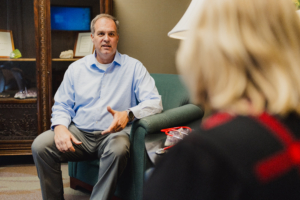
Diet and exercise are, of course, important for prevention as well. But for those not facing a cancer diagnosis, the greatest call to action is staying up to date on suggested screenings. Since the Covid-19 pandemic, cancer screenings are still down. 40% of eligible women in the local community do not take advantage of annual mammograms even with breast cancer leading as the most common cancer. Only 10% of smokers in this community receive lung cancer screenings. Now, colon cancer is the leading cancer-caused death for men. This March, it’s time for individuals 45 years of age or older to schedule a colonoscopy.
“Preventative screenings along with healthy diets and exercise are the very best tools we have in the fight against cancer,” says Harbin Clinic Radiation Oncologist Dr. Matthew Mumber.

